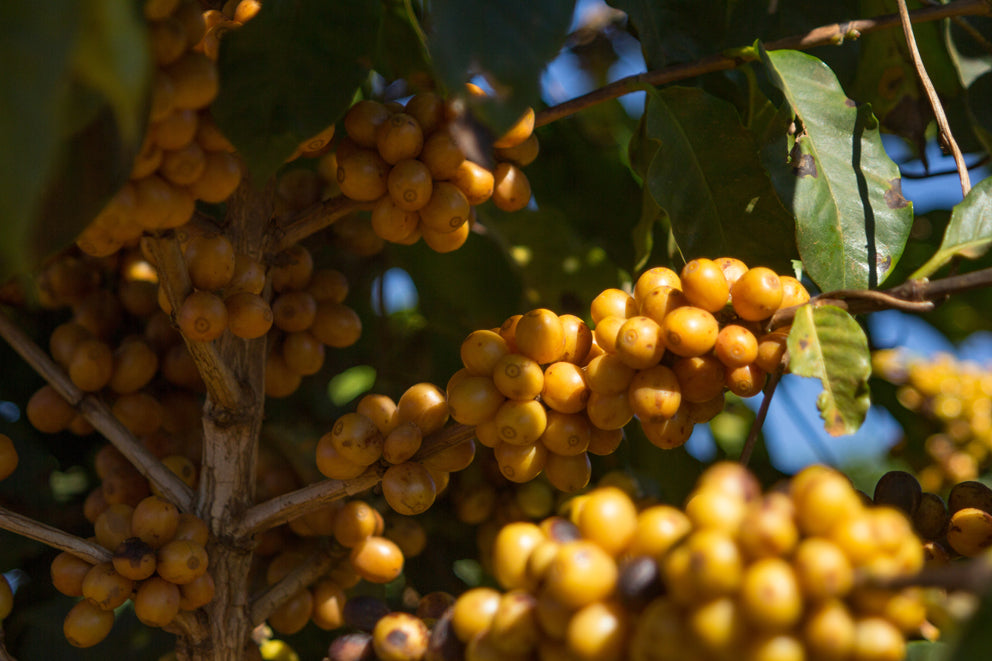
Inside Thoughts | Infused Coffees with Dave Stanton
Infused coffees. What are they? Where do they belong in an industry that prides itself on authenticity? What does the future hold for them within the world of speciality coffee? Through this series of blog posts we explore this topic of debate by asking some leading industry experts and observers on their thoughts and opinions.
Before we dig in, it's probably best to identify what we mean by infused coffees. When we speak about infusion we are talking about the addition of wine yeasts and fruit pulp that is added to fermentation tanks during processing at origin. This addition to the anaerobic fermentation process allows producers to further manipulate the flavours that are associated with specific varieties and origins. While this has been commonplace for producers within different industries for many decades it is something that is relatively new to specialty coffee.
Dave Stanton - Crankhouse Coffee
HHCo - What are your personal views and experiences of infused anaerobic fermented coffees?
DS - Yeasts and bacteria are required to remove the mucilage from the coffee seed. Until fairly recently this has been achieved with the native micro-organisms present in the surroundings, in the soil, in the air, on the surfaces of the tanks in the mill etc. It’s simply a food source for the microbes.
The last few years has seen an explosion in using controlled fermentation and I’ve been a great advocate of these coffees. Some amazing flavour profiles, boozy and almost alcoholic naturals which taste like ripe tropical fruits, and super sweet and floral washed coffees. Some examples have been so ripe that they could be considered over-fermented, or more accurately spoilt. Just like a fruit that been allowed to ripen then overridden to a point of being almost inedible.
Adding other flavour compounds like cinnamon, lavender oil etc is a different matter. If we refer to these as infused coffee or artificially flavoured coffees then that’s fine, as long as there is complete transparency along every part of the supply chain. ie. the producer explains the process, the roaster understands and can relay that to the consumer.
HHCo - What do you feel is the long term value created by infused coffee for the speciality coffee industry?
DS - Clearly the advances in fermentation have made a huge impact in the last couple of years. I think it’s likely to become a more acceptable part of the industry, as the knowledge spreads and both producer, roasters and consumers understand its influences.
HHCo - Do you feel that infused coffees change access and audience to speciality coffee and if so, how?
DS - Not really a different audience. I do think those already committed to specialty have found a new style of coffee which adds to the overall experience that well processed coffees can have, be it a good washed Ethiopian, a good Natural or an Anaerobic ‘Strawberry’ that I’ve had this year.
HHCo - Where do you see parallels in other industries and how does this impact speciality coffee?
DS - The fermentation advancements have definitely come out of the wine and beer industries. They’ve been using yeasts and bacteria for fermentation to create flavour profiles for 100’s of years. Coffee is a baby in comparison..
HHCo - How do you feel infused coffees impact Cup of Excellence and can these coffees exist within the same categories?
DS - I think that’s going to be a difficult one to control and police. All coffee undergoes fermentation. How do you police what fermentation is acceptable for CoE ? I think ruling out ‘added’ flavours is likely but again how do you ‘prove’ what has and hasn’t been added unless a rigorous chemical analysis is performed. Clearly prohibitive and unlikely to occur.




